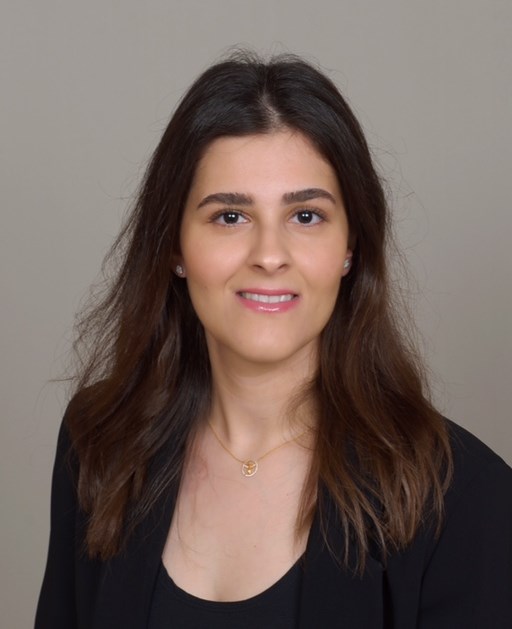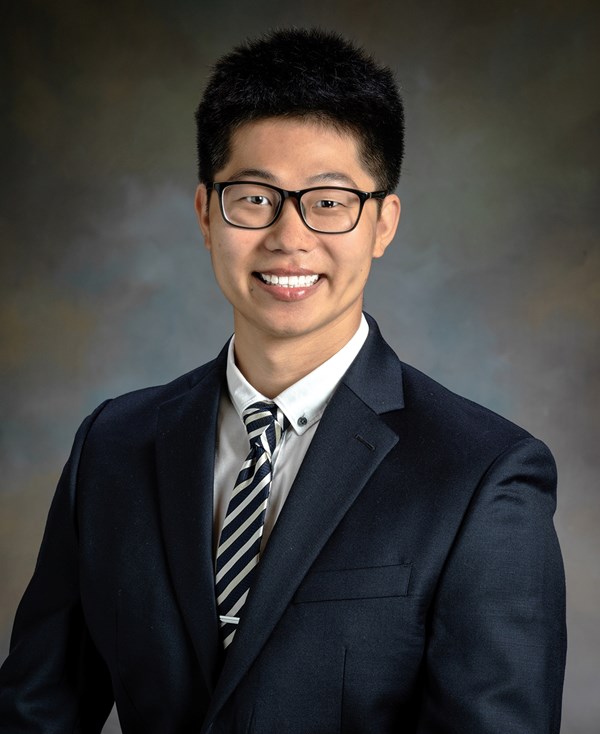Lina Mazin Mohammed, MD
2022 Faculty for Tomorrow Resident Scholar
I am inspired to teach family medicine for many reasons; three stand out to me. First, I am passionate about establishing a culture of mentorship in family medicine that assists young medical students. With mentorship, students can quickly gain advice and support. During my own education, I was enormously inspired by my family medicine preceptors in medical school. They ensured that I was not only prepared to succeed formally, but also shared the lessons they had learned from their own experiences. I consider this crucial to establishing a solid foundation in family medicine. Second, I am confident that teaching will allow me to better advocate for family medicine not only as a practitioner, but as someone actively involved in facilitating the exploration of different perspectives within the specialty. As an educator, understanding the issues that affect people within their career is not only essential for my students, but gives me deeper perspectives to supplement my own knowledge: a perfect opportunity for me to stay up to date on recent evidence-based practice. For students, it allows them to arm themselves with a variety of approaches to their textbook material. Having the opportunity to teach will therefore continue to reinforce my knowledge of real-world clinical settings, while also imparting it to my family medicine students. Lastly, through teaching, I can build upon my leadership and ability to communicate with diverse groups of people, skills that are crucial in the medical field and the establishment of patient-doctor interactions. I see teaching as continually reinforcing principles of active listening, charismatic mentorship, and cooperation. Therefore, while facilitating different perspectives amongst my students, I will also be practicing skills such as team building and directing others. Altogether, in the process of preparing my students for their careers in family medicine, I will also be shaping my own future in the field.
With its emphasis on holistic care and strong doctor-patient relationships, family medicine is regarded as the heart of the medical field. Thus, I see it remaining integral to ongoing developments within medicine.
Regarding my own impact, I am confident I can make a difference through incorporating innovative health technology into my practice, as well as promoting ongoing family medicine research. First, health technology innovation is extremely significant in adding value to family medicine. Using health technology requires applying consistent and compassionate care while also being versatile to the unique circumstances of patients and their families. As an applicant with years of clinical exposure, I would have the opportunity to apply my technological knowledge while collaborating with technology-based organizations that are involved in designing healthcare innovations that provide enormous assistance to all family physicians. In the past, these innovations have included the pocket ultrasound, a portable and economic alternative to the scanning machine, and artificial intelligence software employed to diagnose cancer. Because the real-world impact of these tools will affect me directly, I believe I am equipped to advocate for developments that assist myself and others who could use technology tailored to their specific circumstances. I also intend to have an active hand in family medicine research. My own expansive research background has been essential in preparing me for my own success in this field and enabled me to design research topics and develop theories that I will bring into my day-to-day practice. In fact, one of the most appealing aspects of family medicine is that I will have a diverse range of specialties to research within the discipline. With the medical field being regarded as one of the largest fields in healthcare, I will therefore have no shortage of areas to explore. Moreover, because of this, I see this research as not only aiding other family physicians but also other medical practitioners. Collectively, my commitment to contributing to innovation will be the way I make a difference in the future of academic family medicine.

Lina Mazin Mohammed, MD
Adventist Health Hanford Family Medicine Residency, Hanford, CA
Kyle Lau, MD
2022 Faculty for Tomorrow Resident Scholar
When I began my medical journey, many people asked if I had any family in medicine. I thought that was an interesting question, but then discovered that it was common for people to be introduced to medicine by other family members who were already in the field. I was raised in a first-generation immigrant family in rural MN. Growing up, I mainly worked with my family in a restaurant, and my limited interaction with medicine involved interpreting for my parents during doctor visits. I did not know I wanted to become a physician until I shadowed a family medicine physician during the summer after my first year in college. He showed me how family medicine can empower people and be a pillar for communities. As a family physician, we can care from patients from womb to tomb and, more importantly, address the social determinants of health to create generational change. Until I met my mentor, I was always searching for my vocation and had finally found my place in the world with family medicine. However, I would have missed my calling if I did not seek out opportunities and met the right people at the right time. Thus, I recognized how mentorship can completely change the trajectory of someone’s life, and I sought to be a role model and teacher for others. I started my teaching journey in college by being a biology teaching assistant for hundreds of students as well as mentoring one-on-one with the urban underserved youth in St. Paul. I continued teaching and mentoring during medical school as I tutored my colleagues in challenging courses, and organized monthly health sessions at the Ladder, a community program for underserved youth to explore and learn more about professions such as doctors, nurses, and dentists. Now in residency, I have led multiple morning reports and residency conferences, as well as taught medical students in a variety of settings including inpatient, outpatient, and obstetrics. From those experiences, my passion for family medicine and teaching has only deepened and has helped me realize that I aspired to have a career in academic family medicine. I plan to model for others that no matter what your background is, including if you came from an immigrant, low socioeconomic, and rural area, you can achieve your dreams. Mentors have guided me at key junctions in my life, and thus I hope to do the same for the future generation of family medicine physicians.
I aim to impact the future of family medicine through academia and advocacy. By 2025, it is predicted that the United States will have a shortage of more than 52,000 primary care physicians. Unfortunately, we will likely not make up that deficit by 2025, but I hope to help work towards that goal so that our communities nationwide can have better access to quality healthcare. In a faculty position, my ambition would be to increase and diversify the family medicine workforce. I chose to attend medical school at the University of Minnesota, Duluth Campus because they are committed to training family physicians, which is reflected in their mission statement. There I learned from my mentors, Dr. Raymond Christensen and Dr. James Boulger, on how they developed a culture where each year over 40% of our graduating class matches into a family medicine residency. Also during medical school, I was vice president of my AOA chapter. In that position, I led the change to make our AOA chapter more inclusive and equitable by changing our application process to include a diversity essay, teaching our application evaluators to recognize their own unconscious bias, and organizing a national speaker to discuss the health inequities in medicine. Now, I continue to encourage changes in my residency’s application and interview process to be more inclusive. Furthermore, I represent my residency at various medical conferences to recruit applicants from diverse backgrounds. I hope to continue my work through a career in academic medicine. In addition, I aspire to make a difference in family medicine through advocacy. By using advocacy, we can make systematic and sustainable changes. I was able to experience this when I interned with a family medicine physician who was a Minnesotan state representative. In that role, I lobbied for a bill to provide community preceptors a tax credit. Many of our community preceptors teach medical students without compensation and simply do it because they understand that learning at a community clinic is an integral part to develop the next generation of physicians. I met with multiple representatives and senators from both parties to discuss this issue and garnered bipartisan support. Regrettably, my efforts were halted due to the Covid-19 pandemic, but the experience I received was invaluable and hope to build from it in the future.



